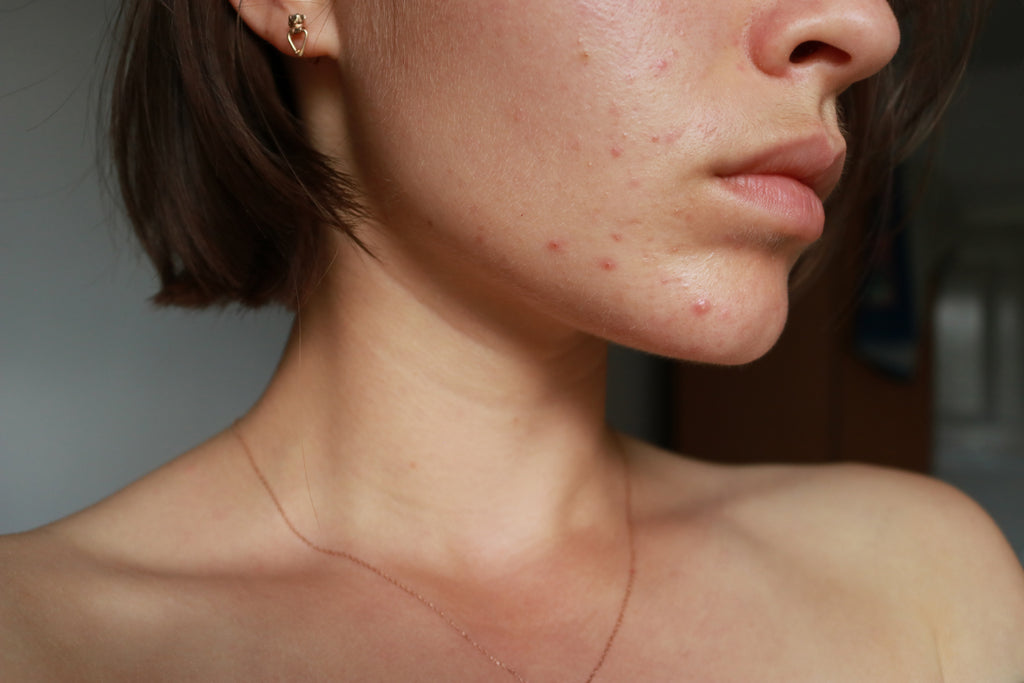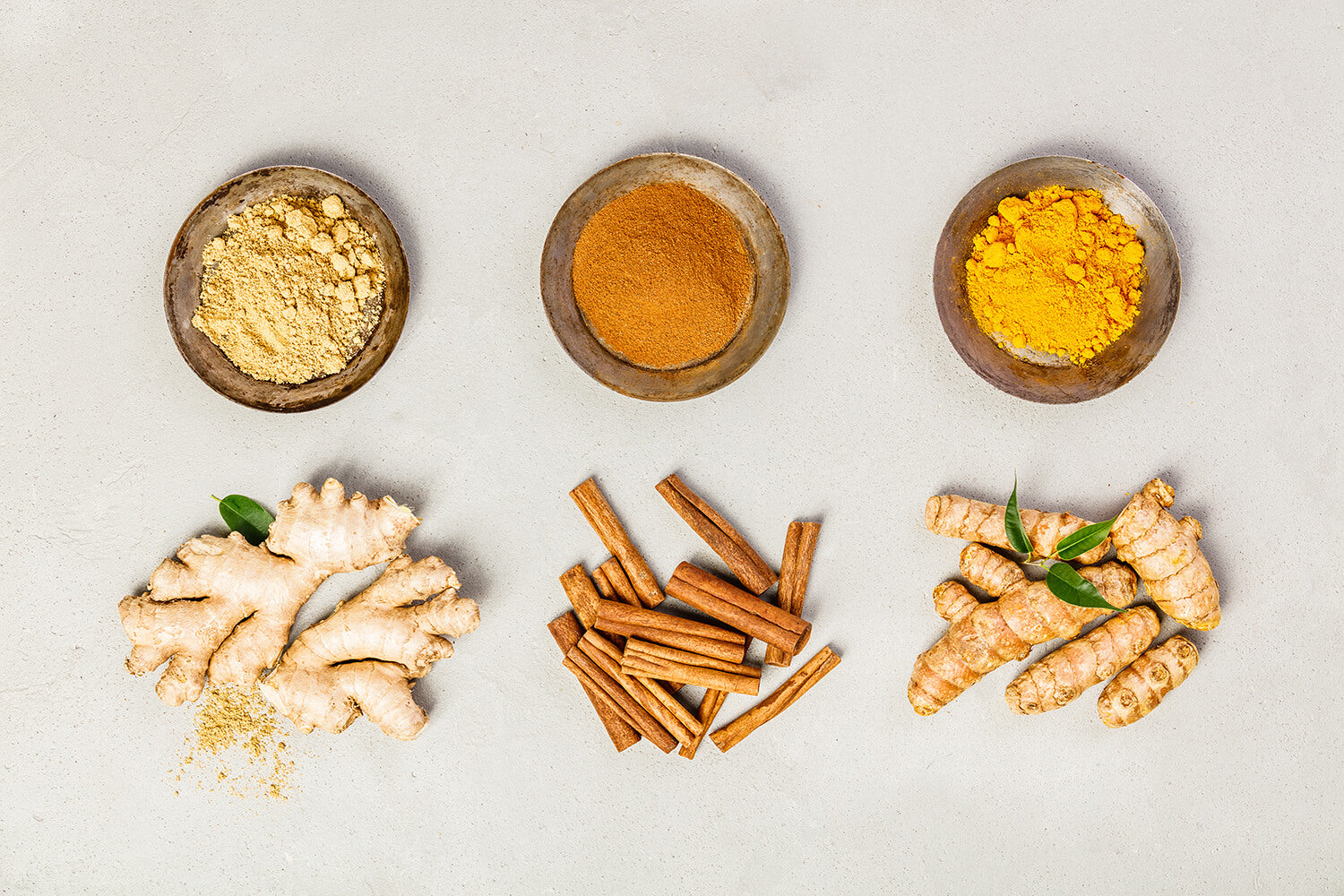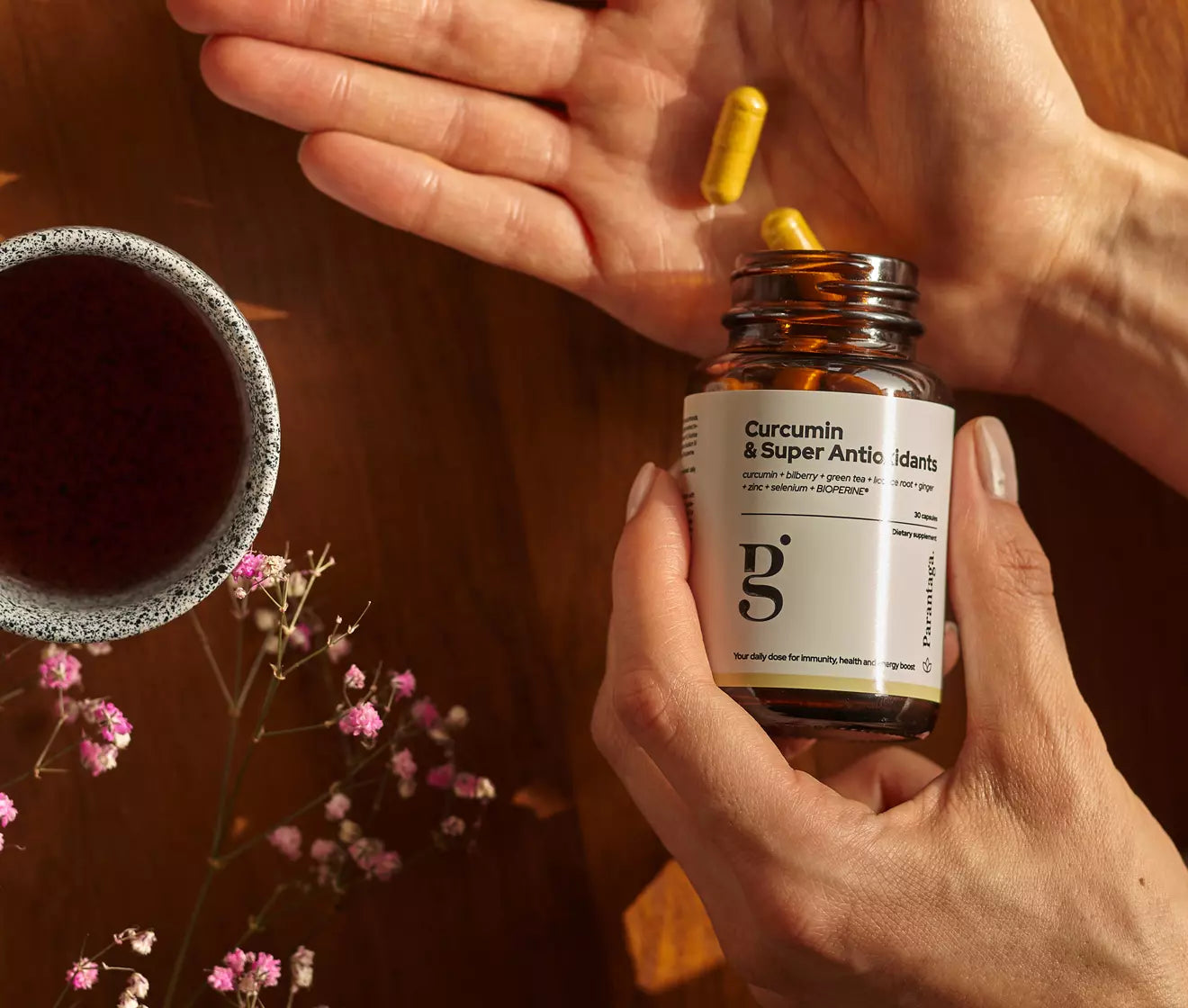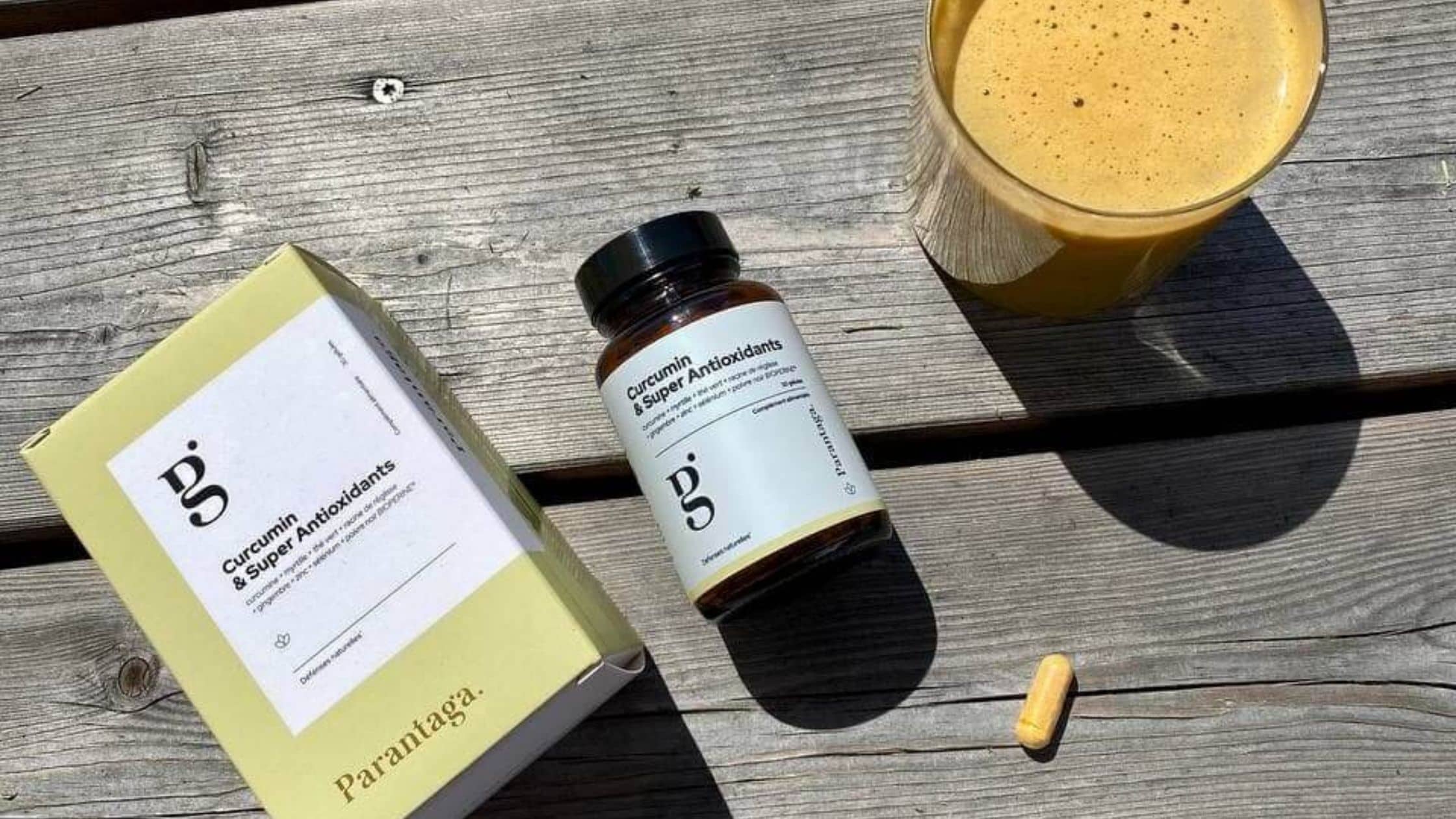Oxidative Stress & Acne
Acne vulgaris is a common skin condition with a multifactorial origin that leads to the oxidation of sebum. This triggers abnormal bacterial growth, resulting in localized inflammation.
Among the internal factors driving sebum oxidation are hormonal imbalances that lead to an overproduction and alteration of sebum; gut imbalances that change the skin's bacterial equilibrium; diet and stress that stimulate inflammatory pathways; and genetics. Environmental factors also contribute to sebum oxidation and, consequently, to acne. These include exposure to the sun's UV rays, various types of pollution our skin encounters, and even excessive skin hygiene.

Where Does Skin Oxidative Stress Come From?
Skin cells continuously produce highly reactive molecules, known as oxidation products or free radicals, through cellular respiration, metabolic processes (like maintaining the skin's barrier function), and external aggressions. These molecules are immediately neutralized by both enzymatic and non-enzymatic systems, maintaining a dynamic and physiological balance. When this balance is disrupted, various cellular structures, such as the cell membrane and nuclear or mitochondrial DNA, may undergo structural changes, triggering or exacerbating skin diseases.
Antioxidants
Antioxidants are substances that neutralize reactive oxygen species, thus preventing oxidative damage to cells and tissues. The skin's antioxidant system consists of both enzymatic and non-enzymatic substances. Among enzymatic antioxidants are glutathione peroxidase (GPx), catalase (CAT), and superoxide dismutase (SOD). Non-enzymatic or low-molecular-weight antioxidants also contribute to maintaining cellular oxidative balance. These include certain hormones like estradiol and melatonin, vitamins like E, C, D, A, trace elements like ubiquinone (Coenzyme Q10), and plant-based polyphenols such as catechins, carotenoids, flavonoids, curcuminoids, resveratrol, and so on.
Antioxidant-Rich Foods
Foods with the highest antioxidant power are primarily plant-based. At the top of the list are cloves, acai berries, cinnamon, turmeric, and oregano. This explains why traditional cuisines that incorporate numerous spices in some countries are considered environmental factors contributing to the longevity of their populations. The antioxidant power of a food is measured using the ORAC index, which stands for "Oxygen Radical Absorbance Capacity" in English. A normal diet usually contains an average of 2,000 ORAC units per day. The goal is to reach 3,000 to 5,000 ORAC units daily to reduce oxidative stress under "normal" conditions.

Be Cautious: Portion Size Matters
When classifying foods based on their antioxidant content, it's crucial to consider the portion size consumed. For example, even though cloves have the highest antioxidant capacity, it would be hazardous to consume 100 grams per day.
Should You Take Antioxidant Supplements?
To answer this question, one must consider all the pro-oxidant factors an individual is exposed to and weigh them against their antioxidant intake. For instance, an athletic person living in the countryside, eating local produce grown in nutrient-rich soil, has likely already optimized their oxidative balance. On the other hand, someone living in a polluted city, leading a stressful and sedentary life, and eating processed or nutritionally poor foods would benefit from optimizing their oxidative balance through antioxidant supplementation.
It's also worth noting the considerable depletion of nutrient content in our foods, even in organic products, due to the expansion of intensive agriculture.
A Note on Antioxidant Supplementation
If you're considering taking antioxidant supplements, it's generally safer to take antioxidants in small doses but in combination. For example, vitamin E works synergistically with vitamin C, which regenerates the tocopherol radical produced during the oxidation of alpha-tocopherol. Additionally, the synergy among different antioxidant molecules amplifies their action and mimics how they function in living systems, where no single active ingredient exists in isolation.
Antioxidants as Key Allies
Antioxidants are valuable assets for anyone concerned about their health. These potent substances have the ability to locate and neutralize free radicals—unstable atoms that can lead to disease and aging. Antioxidants are essential for overall health, particularly for protecting the skin from oxidative damage and thus mitigating the effects of acne.
However, it's important to keep in mind that antioxidants don't address the underlying causes of acne, which are multifaceted and can be complex. Therefore, they can't entirely eliminate your acne issues. To effectively manage acne, one needs to identify and simultaneously address both the causes and consequences of the condition, using antioxidants as part of a broader strategy.






